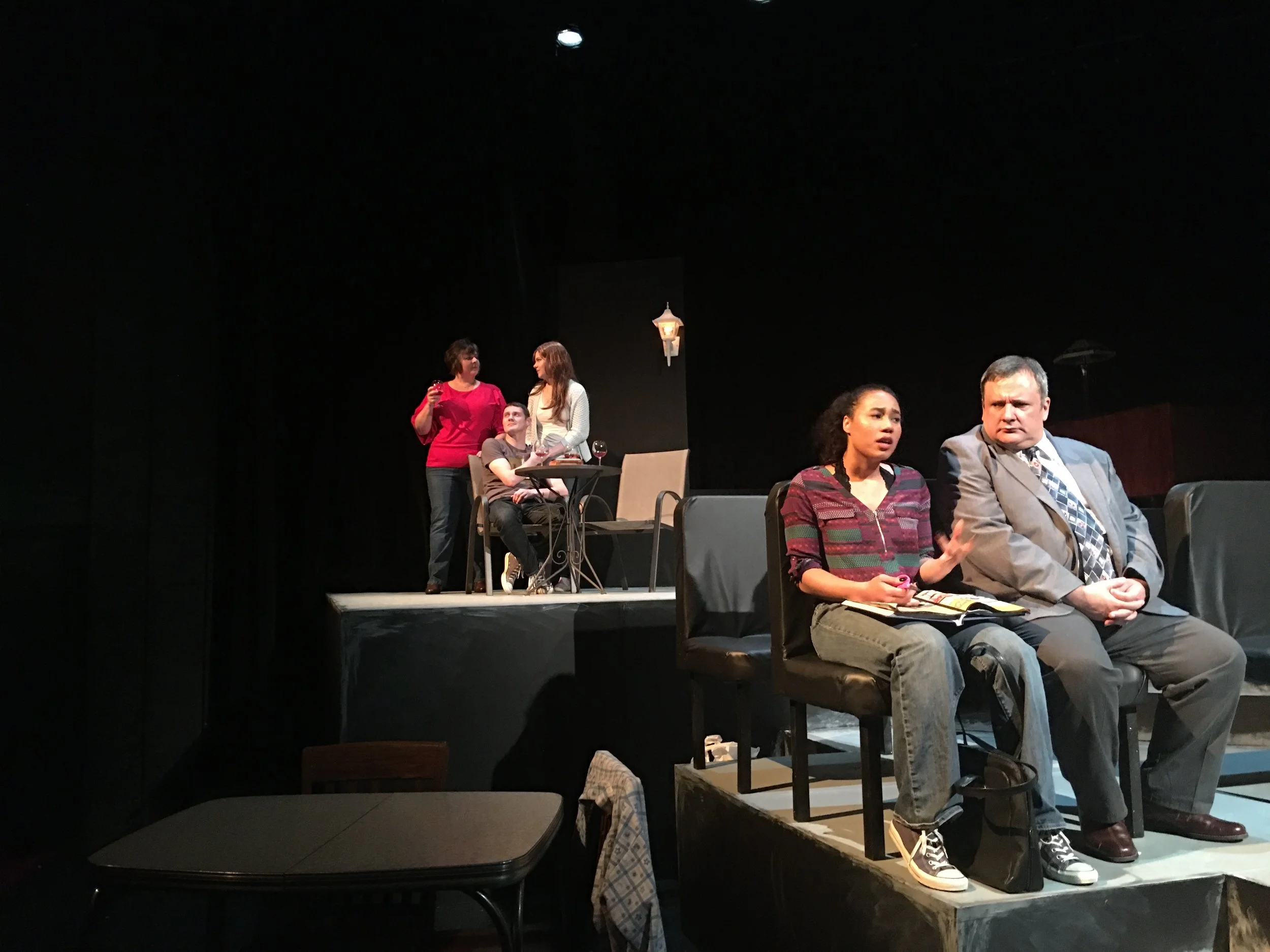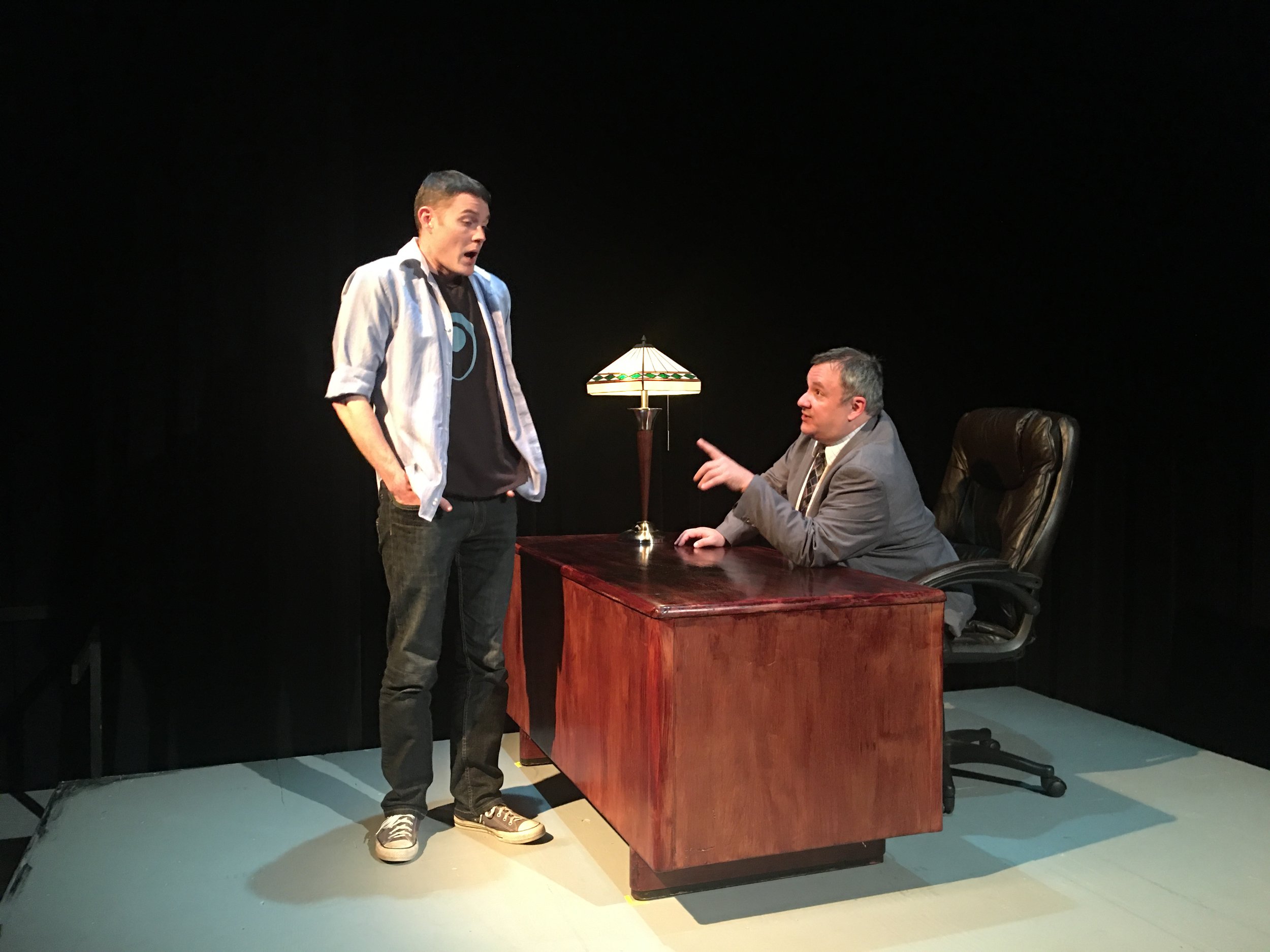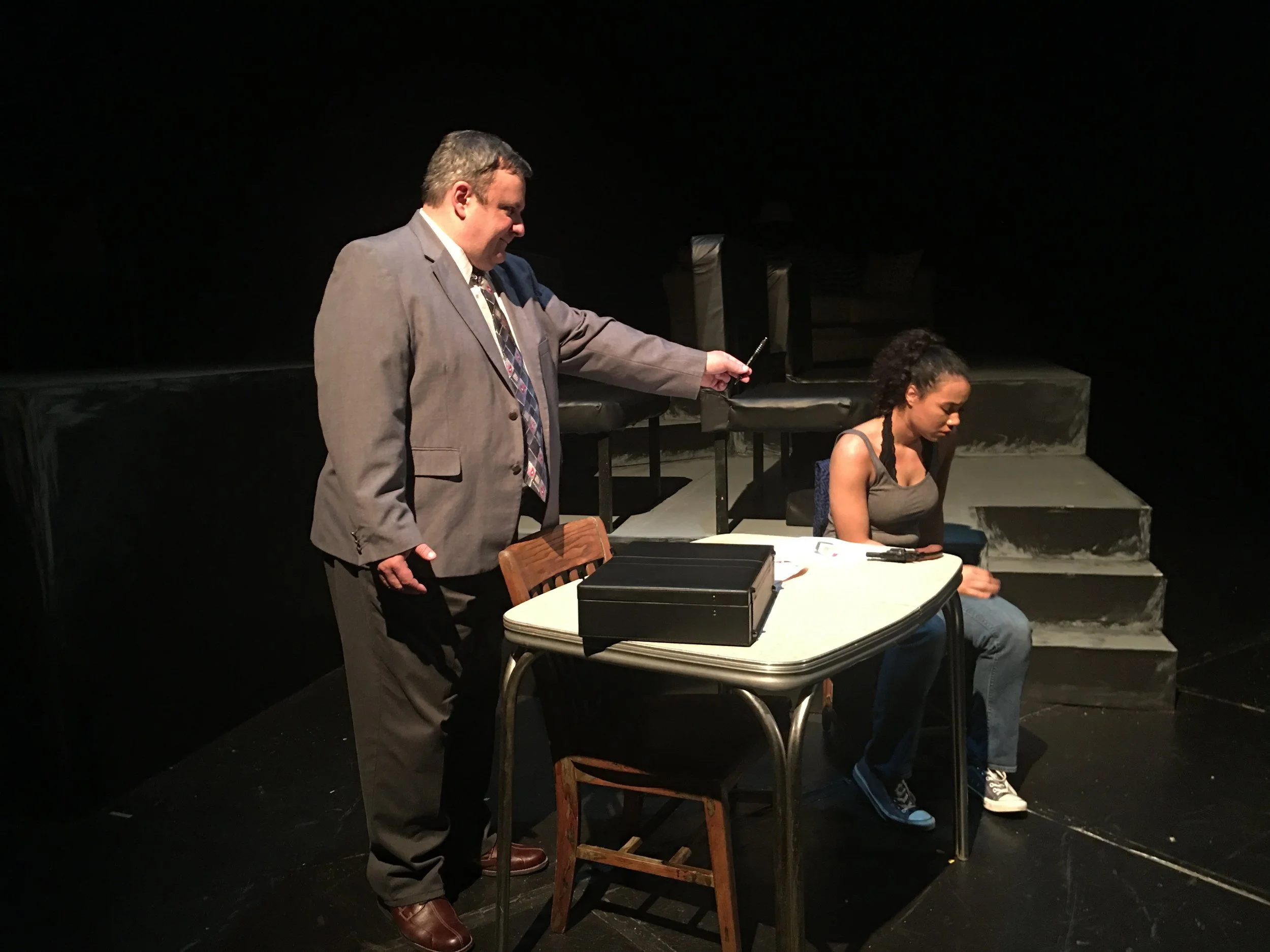Director: White Guy on the Bus
By Bruce Graham
Produced by University Theatre at University of Wisconsin- Green Bay’s Sheboygan Campus
Photos courtesy of Dr. Thomas Campbell
Director’s Notes
From the November 2019 Production
When people ask me what this play is about, I tell them it's about a white guy on a bus. Then, after they roll their eyes, I tell them that it's about how Americans, and particularly white Americans, discuss race. But really, like many of the best plays, this play is about power: who has it, how they use it, and what happens as a result. And really, when we talk about race in America, we're usually talking about power. About who controls the money, the information, the narrative.
The dominant narratives vying for American hearts and minds are the voices of privileged white liberalism and privileged white conservatism. When the two perspectives come together, they spar over their position on the political spectrum, but they often gloss over the white privilege that they share as home turf. According to both narratives, if people who don't share their white privilege happen to experience oppression, it's probably the other team's fault.
Some voices (also coming from white privilege) try to posit that if we just understand the problem, if we just focus on using the right language, we are working toward a solution. You may notice a pattern: most of this discussion takes place in rooms that aren't open to people of color.
But this is a play about a white guy on a bus. Ray has a great life. He lives with principles of loyalty and love, and at work he can manipulate his knowledge of the stock market to make money even on a downturn. In everything he does, he values the big picture. When it suits him, though, we see what happens when a white guy takes a thoroughly-examined and nuanced understanding of racial inequality and uses it not to support social justice but to manipulate it for a different kind of profit.
Unfortunately, we’re not going to solve the problems of white privilege and racial inequality in America in a two-act play– and this play isn’t trying to. We live in a world where some people have to ride the bus, and some people have the privilege to choose how they get around. But whether you're returning home by bus or limousine, I hope this play helps you find some new ways to discuss the issues as you take the conversation outside the theater. Hopefully you can seek out new ways to reframe the discussion and avoid the pitfalls that can lay the groundwork for oppression.










